Operating Services
Prior to Surgery
Ahead of a scheduled surgery, your doctor may order labs, imaging and set up a meeting with anesthesia. You should also expect two phone calls from our team.
Call 1:
A nurse will call you three to five days prior to your surgery to go over your health history, including any respiratory symptoms. They will also talk to you about what medications to take or avoid ahead of surgery. The nurse’s instructions are designed to help you have a safe surgery, please follow them.
Call 2:
A patient financial service representative will call you to review our billing process and answer any questions you might have. Following surgery, you will receive a bill from Idaho Falls Community Hospital. It is important to note, our bill does not include your surgeon’s fees or the fees of any other consulting physicians – they will bill you and your insurance company directly.
Day of Surgery
![]()
Night Before
The night before surgery, do not eat or drink anything past midnight. This includes water, chewing gum and hard candy, like life savers.
Hygiene
Please make sure you take a shower or bath the morning of your surgery before coming to the hospital.
What to Wear and Bring
We want you to be comfortable before and after your surgery. We recommend wearing loose clothing, such as a sweatsuit, buttoned up shirt or two-piece pajama sets for children. We also encourage our patients to leave valuables, such as jewelry, watches, wallets and purses, at home.
Arrival
We ask our patients to arrive two hours before your surgery. Our team will do our best to stick to your scheduled surgery time, however, we appreciate your patience and flexibility. Our team will call you as soon as possible if we are experiencing delays.
Children
Surgery can be especially scary for children. If you are accompanying them for surgery you can help put them at ease by bringing along their favorite blanket, toy or stuffed animal. If your child still uses a sippy cup, please bring one with you to help your child get enough liquids following surgery. Finally, we recommend packing an extra pair of underwear and bottoms just in case your child has an accident after surgery.
Potential Problems
If you wake up with a fever or a new respiratory condition, please call the hospital at 208-528-1000 and ask to speak with a nurse. They will help assess if it would be safer for you to postpone your surgery.
Following Surgery
If you need to stay in the hospital following your surgery, please know our team will do everything to get you back on your feet. If you are going home after surgery, please arrange to have someone drive you home and stay with you for 24 hours following your procedure. Before you leave the hospital, a nurse will visit with you to explain what to do following your surgery. Their instructions are designed to help you with your recovery. Please follow them carefully.
When to Call a Doctor
Our team is dedicated to helping our patients make a full and speedy recovery following surgery. We do everything we can to reduce our patients’ pain levels, limit their chances of infection and give them the tools to properly care for themselves following a procedure. If patients have concerns at any point during their recovery, we encourage them to reach out to our team.
If you experience any of the following symptoms, please call your doctor immediately or come to the emergency department:
- A temperature of 101 degrees or higher
- Signs of infection near the incision, including:
- Increased swelling, warmth or drainage
- Redness
- Bleeding
- Foul smell
- Incision coming apart
- Increased numbness and abnormally cold fingers or toes
- Unrelenting nausea or vomiting
- Severe diarrhea or constipation
- Problems urinating
- Increased pain or tenderness near the incision
- Unmanageable pain
- Any other symptoms that seem unusual or concerning to you






